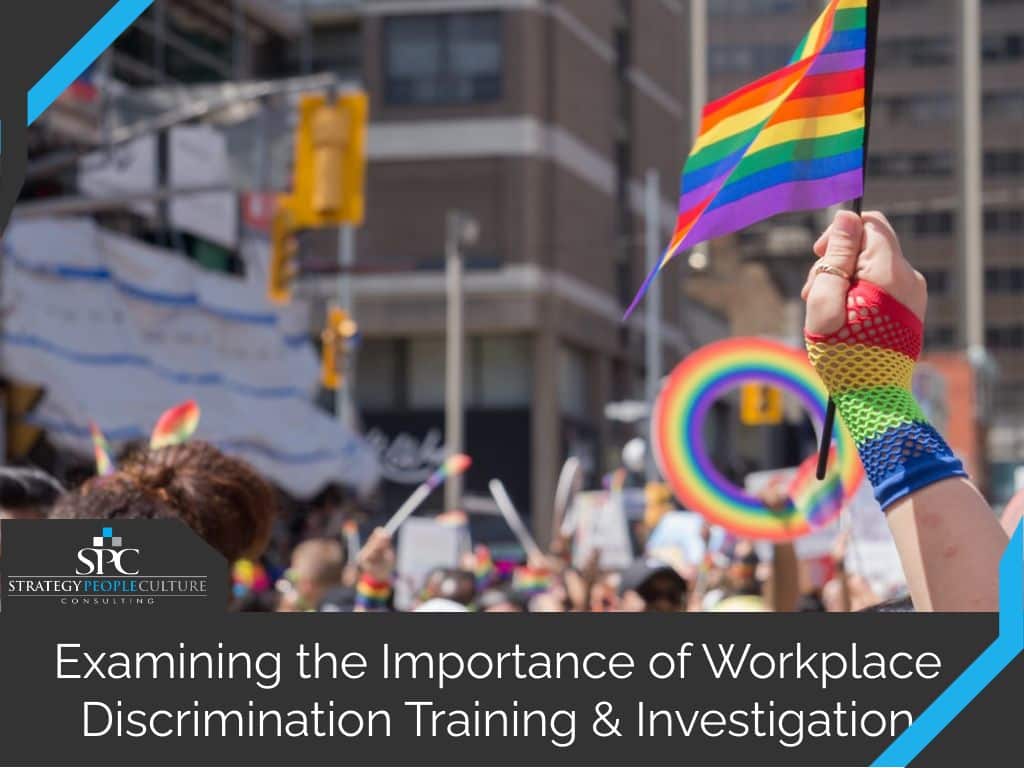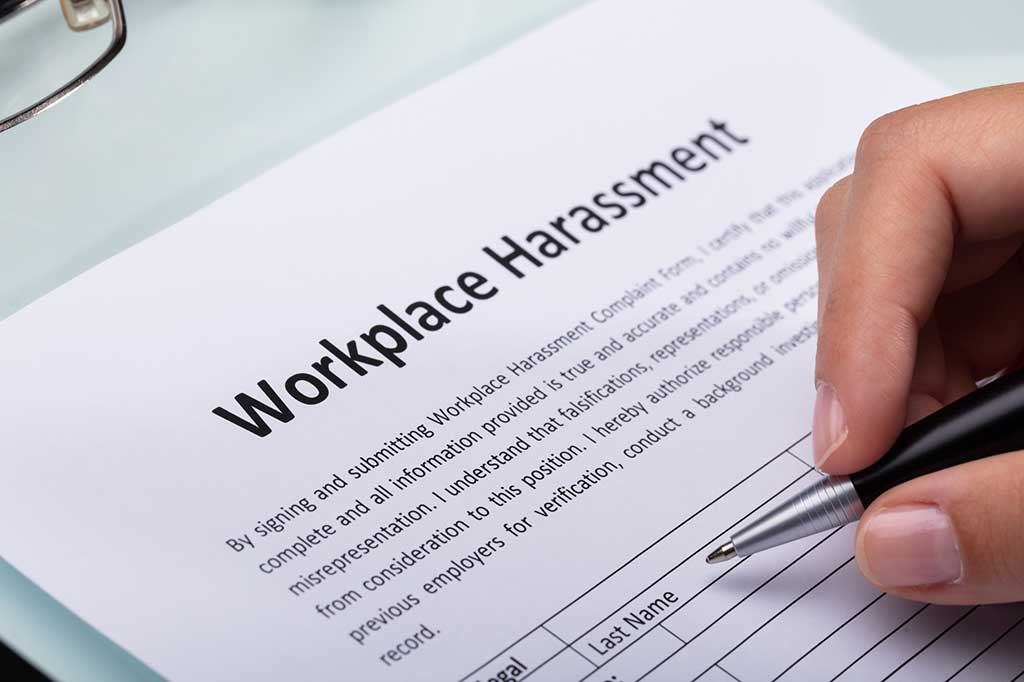Examining the Importance of Workplace Discrimination Training & Investigation

No one wants to be discriminated against based on their race, gender, sexual orientation, or religion – especially in their workplace.
Any form of discrimination can negatively affect people, but discrimination in workplace organizations is illegal throughout the United States.
A recent supreme court ruling showcases current-day issues around discrimination, which universities and employers alike are wrestling with. The Court found that a Virginia school board violated federal discrimination laws when they denied transgender students the right to use bathrooms that matched their gender identity. So inclusivity is no longer just a societal expectation – it’s a legal one.
The Civil Rights Act of 1964 was created to help ensure people are not discriminated against. Since then, this law has been amended by a series of laws to ensure people aren’t discriminated against, whether it’s gender identity or another protected classification. Title VII of this law speaks specifically to protecting individuals from being discriminated against during their employment process, including from the hiring process straight through until an employee separates from the company. This law is enforced by the Equal Employment Opportunity Commission (EEOC) on a federal level. In addition, many states and municipalities around the country have local enforcement mechanisms.
So, are you complying with related legal regulations? Are you promoting a happy, inclusive workplace – and if not, how is that a problem?
If one of your employees believes they have witnessed or experienced one of the best outcomes you can hope for, they alert the organization’s human resources or senior management. Many executives would react to this by saying they don’t ever want a complaint. The way to avoid that is to be proactive around training, and in the environment the company creates. However, if an issue does occur and the company learns of it, there should be an investigation. Whether the company does the investigation or hires an outside company such as Strategy People Culture, this allows the company to understand what is likely happening and address the situation(s). Alternatively, an employee can submit a complaint of harassment or discrimination directly to the EEOC or other applicable local agencies. This may lead to an investigation of your company by a government agency.
That’s why you should proactively implement your own anti-discrimination and anti-harassment training and investigation procedures. Let’s discuss the importance of staying one step ahead of bias, harassment, and prejudice in your company.
1. Discrimination Policies Discourage Offenders
The primary goal of organizational efforts around harassment and discrimination efforts is to take steps to minimize the chances of discriminatory behavior occurring in the first place.
Having clear policies stating your organization does not permit discrimination, or sexual harassment in your workplace is an important and meaningful initial step. Communicating to your employees such behavior is not okay, and as an organization, you will do something if it does occur can be the difference between talking to a lawyer or not.
In fact, a recent survey of various U.S. companies found that 39 percent of employees aren’t confident they will be taken seriously by their employers after filing a discrimination report. By showing you value discrimination awareness upfront, you can help ensure your people are in the other 61 percent.
Anti-sexual harassment and anti-discrimination policies should clearly define employee and management behavior expectations. These policies should warn of the potential disciplinary actions that can occur if an employee or manager is discovered to have participated in discriminatory behavior. Consequences may include warnings, suspensions, or firing.
In addition, your policies should outline expectations of how sexual harassment and discrimination complaints are submitted, investigated, and resolved. Having a clear set of written guidelines plays a significant role in the perception of harassment and discrimination within a workplace. It also helps an organization manage the potential defense of a claim against an organization, should one arise.
2. Proactive Education Helps Prevent Discrimination
Having said all that, it’s not enough to only address discrimination in the form of a written policy. Consistent, clear communication is necessary to ensure employees are following company guidelines.
Education is crucial – it’s important that you put your team through mandatory training programs. Anti-discrimination training provides an opportunity to teach employees and manage inappropriate language and actions contributing to a hostile work environment. The truth is, discriminatory or harassing behavior may not be malicious or even intended. Some people, including executives in companies, may carry over social behaviors into the workplace that are not acceptable. Think about it, have you ever heard an inappropriate joke with a sexual or discriminatory undertone?
Some states mandate that this training occurs at specific intervals (for example, every year), while other states require specific material to be covered as part of this training.
A well-designed training program should reinforce what is written in your discrimination policy and bring awareness to the following topics.
- Different forms of discrimination (with examples)
- Explanations of what is and is not sexual harassment or discrimination
- How employees/management can prevent workplace discrimination
- Ways to report discrimination
There are many options to this training, though it is important to ensure the training is done by someone who knows what they are talking about. Companies like Strategy People Culture can provide high-quality, live, and interactive training. If you are looking for more of an on-demand, cloud-based solution, you may consider a company like EEO Training.
3. You Need to Investigate Complaints as They Happen
If your company receives sexual harassment or discrimination complaint, you must investigate the situation thoroughly and in a timely manner.
An internal investigation is essential for many reasons, including employee relations, correcting potentially inappropriate behavior, and strong general risk management. A complaint through the EEOC may lead to court action. If this happens, you will want plenty of evidence that proves you looked into the situation and discovered the truth about what happened – it’s your legal obligation. If an unfortunate situation occurs in the workplace, having policies and complaint procedures in place, supplemented with quality training, and then investigating possible issues to promptly remedy any potential misbehavior is the best defense you can have.
Your organization may be faced with expensive fines, bad press, and other consequences if you negate your legal responsibilities of investigating workplace discrimination.
Investigating discrimination allegations also proves to your employees that you take these matters seriously and that they will not be tolerated. Even if the investigation indicates that discriminatory actions did not occur in your workplace, the act of investigating shows you care.
It’s also a good idea to check in with team members individually after a discrimination complaint has been filed. This will help your employees feel more comfortable in the workplace following a negative situation.
Want to Learn More About the Importance of Policies, Training, and Investigations?
If you either have a need for assistance or just want to talk through and learn more, Strategy People Culture can help.
We are a uniquely designed organization focused on executive leadership coaching assisting leaders to develop better skill sets and improve themselves combined with deep expertise on training and investigations in the sexual harassment and discrimination space.
If you want more information about our services, contact us online today! You can also call 833-ROCK-SPC or email info@strategypeopleculture.com.



